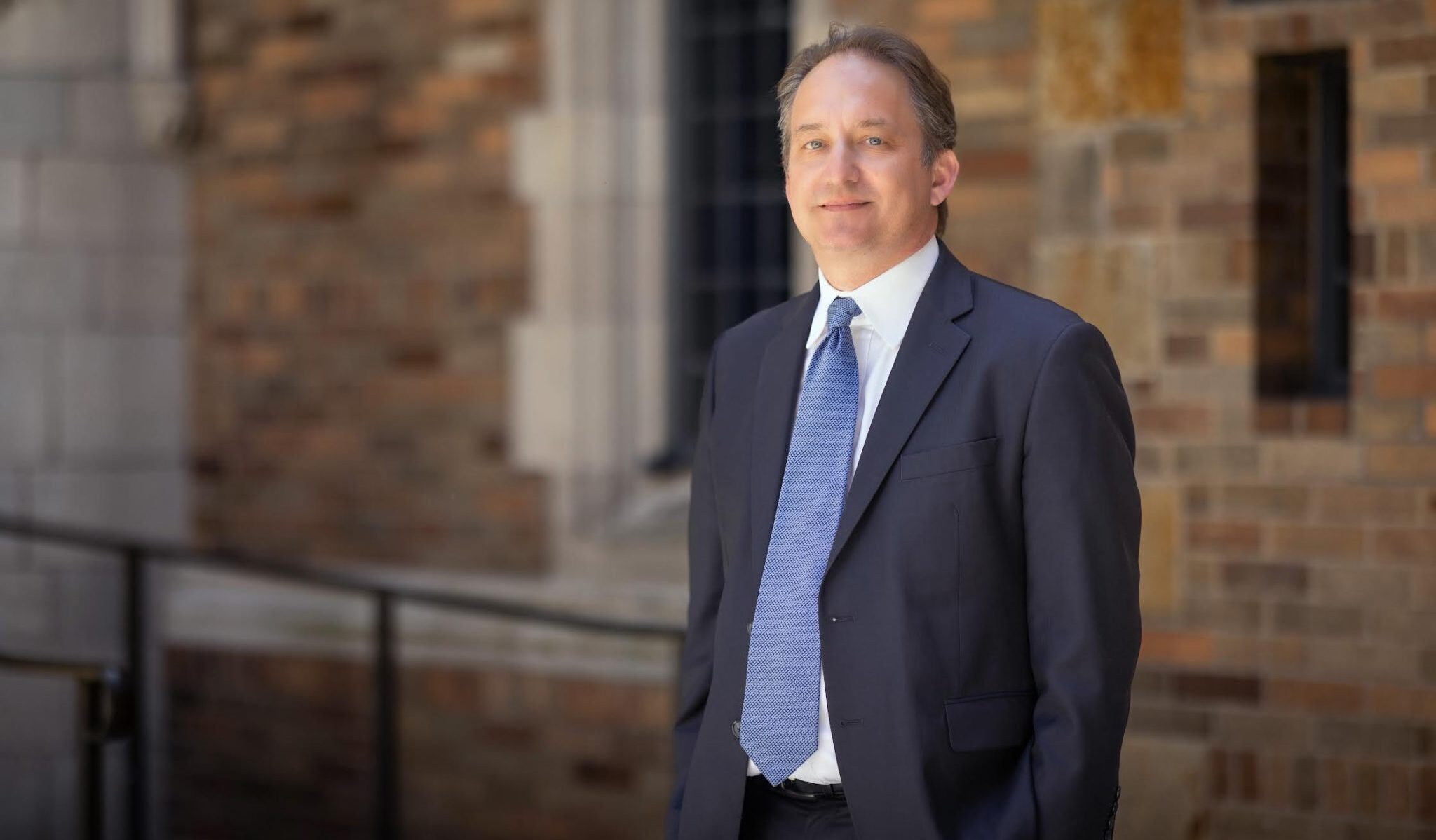Following Chun’s five-year tenure, Lewis takes over as Yale College Dean
As Yale College Dean, Pericles Lewis’s proposed academic agenda focuses on improving the course registration process, strengthening advising systems and increasing support for underrepresented students.

When Marvin Chun stepped down from his post as Dean of Yale College, University President Peter Salovey announced that Pericles Lewis would be his successor.
After a five-year tenure focused on Credit/D/Fail reform, financial aid improvements and adapting to the COVID-19 pandemic, Chun announced that he would not seek reappointment in January 2022. Lewis, a long-time Yale administrator, officially took Chun’s place later that year. Since then, Lewis has taken up many of Chun’s priorities, with additional focuses on course registration, advising and diversity.
In an email to students and faculty, Chun noted that he had informed University President Peter Salovey of his decision to step down in November but waited to inform the rest of the community due to worsening public health conditions brought by the omicron variant of COVID-19.
Although five years is the standard term length for Yale’s deans, Chun cited several factors that influenced his decision not to seek reappointment.
“I feel really good about what my team — my colleagues, the faculty, the students — what we’ve all accomplished across the duration of my term,” Chun said in his email. “I feel very good about what has been achieved … including getting through this pandemic.”
Chun — a professor of psychology, neuroscience and cognitive science — was the first Asian American Dean of Yale College. He joined Yale as a faculty member in 2003 and served as the head of Berkeley College from 2007 to 2016. His term as Yale College Dean officially ended on June 30, 2022, and he has now returned to a full-time teaching and research position.
Chun said that he is particularly proud of his work to expand financial aid, including the creation of the Summer Experience Award and Yale Safety Net and the expansion of the First-Year Scholars and STARS programs. He also oversaw initiatives to increase financial aid packages, eliminate parental tuition for families that make less than $75,000 per year and ensure better financial aid benefits for Eli Whitney students.
Chun also emphasized the success of Yale’s certificate programs, adding that he looked forward to faculty introducing new certificates in years to come.
While dean, Chun introduced Yale College Community Care in April 2021 — an expansion to University mental health services that offers short-term treatment with licensed mental health clinicians and additional wellness specialists.
When University President Peter Salovey announced Chun’s appointment in April of 2017, Chun noted that he felt “confident” in his goal of making Yale the “research university most committed to teaching and learning.” He outlined several key principles, which included reinforcing residential colleges as places where “students should feel at home” and experience the diverse perspectives of fellow students. Chun emphasized that “diversity is not a trade-off with quality.”
Another of Chun’s policy focuses was the Credit/D/Fail option. Throughout Chun’s term, the Credit/D/Fail option guidelines underwent many major changes. Chun extended the Credit/D/Fail deadline so that students no longer needed to decide whether to take a class Credit/D/Fail at the beginning of the term. Currently, students have until the final day of classes to change a class to Credit/D/Fail, a decision that is not reversible. However, as of December 2021, Chun still wanted to push the Credit/D/Fail deadline later.
When the COVID-19 pandemic shifted Yale College to a remote learning model, Chun administered the adoption of a universal pass/fail grading policy for the spring 2020 semester. The policy was implemented in response to the challenges posed by the pandemic and the transition to online instruction.
As the University began the process of selecting a new dean following Chun’s decision to step down, students shared their expectations and hopes for his successor, stressing the importance of accessibility to students and experience in the classroom.
At the time of his departure, Mahesh Agarwal ’24 expressed that he thought Chun would be “remembered positively” as a dean who took a meaningful interest in student perspectives because of his enthusiasm for Credit/D/Fail grading policies.
“I definitely see him as someone who cared a lot about students, and at least wanted to try to listen to students as much as possible,” Agarwal said to the News.
Pericles Lewis, a comparative literature and English professor, was announced as the next Dean of Yale College by University President Peter Salovey in May 2022. Prior to his appointment as dean, Lewis served as the University’s vice president for global strategy and vice provost for academic initiatives. When Salovey announced his appointment, Lewis expressed his enthusiasm for undergraduate education, affirming his commitment to ensuring an excellent curriculum, supportive student life and a flourishing and diverse community. He plans to strengthen advising for first-year and sophomore students, expand mental health resources and continue the initiatives introduced by Chun.
Lewis, who has been with Yale since 1998, has also held administrative positions and taught courses in literature and the arts. He served as the founding president of Yale-NUS College and played a significant role in developing international educational programs for Yale students.
Lewis’s agenda focuses on reevaluating class registration and advising systems, as well as expanding programs for first-generation, low-income students. Lewis hopes to modernize the Yale College experience by providing clearer guidelines for students in navigating different majors and paths. Lewis also aims to strengthen advising and informational support for students.
Lewis stated that he and Chun have a comparable perspective regarding the significance of a liberal education and its evolution.
In recent years, Pericles Lewis has been teaching two courses for first-year students: “Purposes of College Education” and “Contexts of College Education.”






